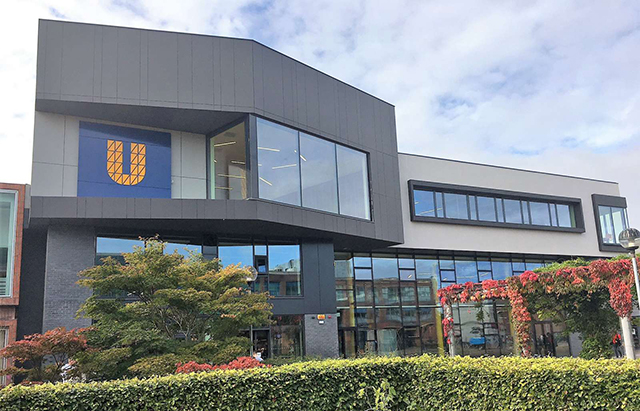
[dropcap]T[/dropcap]he Central Applications Office (CAO) has reported a rise in demand for DCU courses, particularly in STEM, Nursing, and Humanities and Social Sciences.
Overall, the University has seen an eight per cent rise in first preference applications this year and individual course applications have increased by almost a quarter.
Nationally, CAO applications for third-level institutions have risen by 8.5 per cent.
President of DCU, Professor Daire Keogh believes that students are attracted to DCU’s ‘People First’ ethos.
“Our responsiveness to students’ individual needs was certainly a strong contributor to DCU’s designation as Sunday Times Irish University of the Year 2021,” he said.
DCU’s trophy cabinet also benefitted courses in communications and media, where a 58 per cent rise in first preference applications for its Journalism degree was reported by the CAO.
This rise is linked with DCU’s capability to maintain its position as Ireland’s top university for Communications and Media Studies and within the top 150 universities worldwide, according to a DCU press release.
Reliance on traditional media has risen during the Covid-19 pandemic. RTÉ reported that they have had a 200 per cent increase in consumption of their news content since St Patrick’s Day 2020.
It can be assumed that some of the increases within communications and media courses are linked to this.
Declan Fahy, Chair of DCU’s Journalism course, said “It’s hard to pinpoint the reasons behind an increase in applications, but the last year has shown the fundamental importance of journalism to society.
“In the past year, journalists around the world have provided up-to-the-minute facts about the Covid-19 pandemic that are reliable, authoritative, and verified.” Fahy added.
Professor Colleen Murrell, a researcher with the School of Communications said she thinks that Covid-19 has “taught everybody” there’s a “real need for public interest journalism.”
She added that with Covid-19, the public needs trustworthy information both nationally and internationally.
Murrell believes, “there is definitely a Covid-19 effect to this rebirth of interest in journalism and media studies. This is perhaps like the ‘Trump Bump.’”
“But there are also other – longer term – reasons for young people to take an interest in journalism. For example, it could be to report on important matters… climate change and global health issues,” said Murrell.
This increased awareness of climate change among young people is also evident in the surge in applicants for environmental degrees.
Those courses had a 70 per cent increase in applications from last year, with degrees like DCU’s newly introduced Bachelors in Climate and Environmental Sustainability seeing the biggest increase in demand.
STEM first preference applications have also risen exponentially this year. Course applications in the Faculty of Science and Health have risen by ten-per-cent. Programmes in engineering and computing have increased by 24 per cent.
Computer Science and Computing for Business courses have seen 55 per cent and 45 per cent increase in first-preference applications, respectively.
Nursing applications have also grown with Children’s and General Integrated Nursing up over 40 per cent.
Professor Keogh said that “The strong demand for DCU programmes reflects our world class teaching and learning, and the transformative student experience we offer.”
Adding that from STEM, to education, to communications and to nursing he believes, that students are recognising that DCU’s programmes are “innovative, relevant and engaged with real world challenges and opportunities.”
Muiris O’Cearbhaill
Image Credit: Swiss Facades


